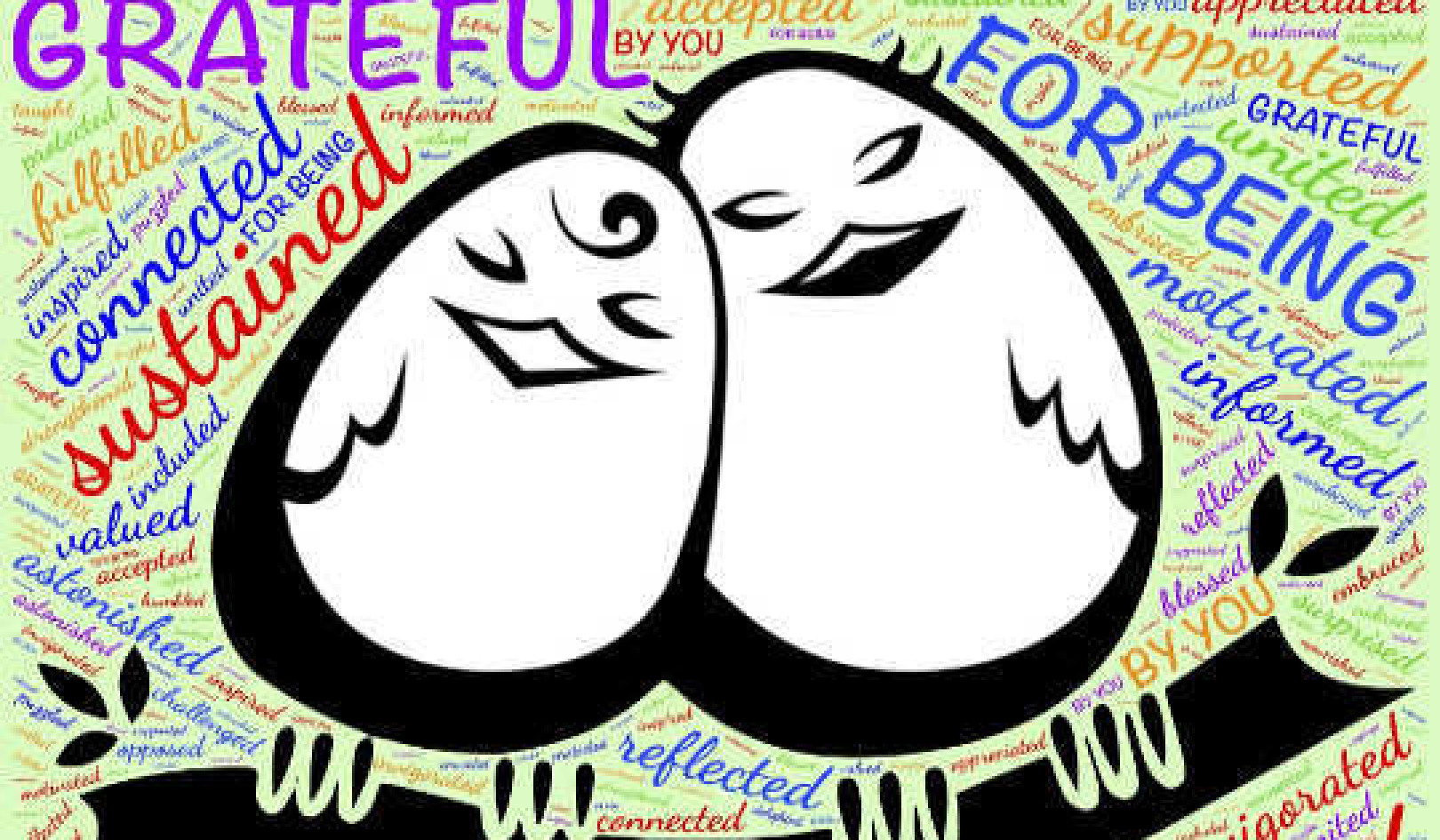
Though we all want our children to do well, to have what they want, to achieve, we need to be aware that what they want may be different to what we want for them. Many people find themselves in positions in life that aren't suited to them and feel unhappy and unfulfilled partly because they've done what was expected of them to please their parents.
If you fit your children into a mold of your design you may miss many of the surprises of which you cannot possibly be aware unless you give them the freedom to be who they are rather than who you want them to be. And if you feel that has happened to you, stop and take a good look at your life and see if the rules and desires you live by are really your own.
It's never too late to make changes -- though think well and take small steps unless your intuition tells you that more radical life surgery is the way forward. How about talking it through with someone you trust (probably not the parent you've been trying to please) before you make a decision?
Being Best Friends
Many young boys have been introduced too early to alcohol and violent or sexual videos because their fathers want to be best buddies with them and therefore fail to keep suitable boundaries. Recognizing our unique and honorable position as parent -- the only mother or father they will ever have -- can help us move into a more appropriate position and let them have other people who can be their best friends.
Confidantes
It may seem that you have no one but one of your children to talk to about your problems, but it doesn't have to be that way. There's always someone you can find who is more appropriate, and who will have a more objective view than your child anyway. It's unfair and abusive to give your children information they cannot process, to poison their minds about their other parent, to expect them to shoulder adult burdens that you yourself can't handle.
Please find a professional or a friend with whom you can work through whatever you need to talk about. And if you've suffered this as a child (even an adult child), or are continuing to do so, perhaps you could drum up the courage to say to your parent that you no longer want to be party to hearing their problems and excuse yourself while forgiving them for having used you like this in the past. The best help you can give is to close off this route, which can never lead to them getting really well, and guide them in the direction of professional help.
You may be the easiest person for your parent to talk to, and you may love the extra closeness it appears to bring to your relationship, making you feel special and different -- but that doesn't mean it's good for either of you.
Favoritism
All children are different. Some are like us and we may feel a close and special bond with them. Or you may find yourself preferring to be with a daughter rather than a son because you can chat to her more easily. Whatever the reason, our feelings may lead us to show favoritism towards one of our children. Be careful! This often leads to collusion with him or her at the expense of other children.
Confiding in your favorite sets the stage for an abusive situation not only for other children, but for the favorite too: subjecting them to different standards and limits leads them to be ostracized by their siblings and peers and may cause behavioral problems.
Intimacy Buffers and Vacuums
If there's a problem with intimacy in your marriage or with your partner, then it's up to you to sort it out rather than using one (or more) of your children to alleviate the pressure. Sometimes children are used almost as human shields to ward off situations that might lead to having to be honest about one's feelings.
If intimacy (not of a sexual nature, but the giving of comfort, solace and companionship, which ideally should be given by a partner) is a problem, it needs to be gently confronted rather than avoided. There are potential lifelong consequences for a child who is used in this way, as the resultant enmeshment with the parent prevents him from being free to develop his own needs for intimacy and to search out appropriate partners to fulfill those needs.
Loading the Gun...
Often one parent, say the father, is accused of being the bully, being rough and outspoken or being the "bad guy" in general while the other parent is seen as sweetness and light. But often the "bad guy" is only acting upon facts that have been fed to him by the other. In such cases the "nice" parent, in this case the mother, feeds the other with information that requires action and then backs off, leaving her partner to deal with the problem. The "good guy" manufactures the bullets and loads the gun so that her partner fires it and does the dirty work.
The end result is that one parent becomes more and more peripheral while the other is worshiped and pitied for having such a dreadful partner. Not only is this an abdication of responsibility, but it's dishonest, weak, manipulative, and downright cowardly. Do have the courage to deal with things honestly rather than teaching your children to sneak around telling tales and getting someone else to speak for them.
Collusion
 Empathizing with our children is commendable and desirable, but sympathizing with them (or anyone else for that matter) often leads us to the next step of collusion. We find ourselves making allowances, having different expectations and eventually getting into a dishonest transaction where both of us know that we're not being truthful, but we avoid and ignore that fact and carry on with the fantasy we've created.
Empathizing with our children is commendable and desirable, but sympathizing with them (or anyone else for that matter) often leads us to the next step of collusion. We find ourselves making allowances, having different expectations and eventually getting into a dishonest transaction where both of us know that we're not being truthful, but we avoid and ignore that fact and carry on with the fantasy we've created.
Gary heard his mother tell his teacher that his homework wasn't done because he was unwell. Both he and his mother knew this was a lie. In her protection of him at any cost, his mother is teaching Gary to lie and also proving that she herself is untrustworthy. Neither can trust the other any more because deep down you both know neither of you is honest. This sows the seeds of dishonest and manipulative transactions in other areas.
Having the courage to gently confront issues as they are, models to your child a loving but honest way of being that will lead them to be self-confident, self-respecting adults who live in accordance with their integrity.
Dependency
Though we usually see our children as dependent upon us, often it's the parent who's the dependent one. Sometimes we've a hidden agenda in having children -- we want someone to love us, to take care of us. But this leads to confusion about the roles within the family and to inconsistencies when the parent suddenly wants to take charge again. By then parental authority is undermined and no one knows where the control lies.
If you have dependency issues, it's time to sort them out. Remember what you're modeling to your children. And if you have a dependent parent, unless you're at the age when we naturally switch roles and start to parent our parents, then you need to look to your own needs and move out of an unhealthy and potentially crippling situation.
Overprotection and Coddling
Overprotection always arises where parents have their own issues of fear. They project these onto their children, instilling in them anxiety, feelings of fragility and helplessness and preventing them from developing the coping skills needed to get on with life and ride the waves. Unless children are allowed to fall they'll never learn to get up by themselves. Unless they make their own mistakes, they're unprepared for life.
Take courage and stand back. Hold your breath if you must, but let them stumble and recover. This goes for rescuing them from difficulties into which they get themselves. Too often I see people who've never learned the value of money because their parents always paid their debts. Or others who don't tell the truth because their parents have always lied for them to authority, protecting them from discipline at school, from brushes with the law and from standing their corner in petty disagreements.
This brand of "loving" is actually harmful, and one wonders whose pain such parents are trying to avoid -- their children's or their own. It's usually the latter. Children need to learn that we're living in the real world. Things aren't always as we want them to be and we just have to learn to deal with it and look for the gift wherever we find ourselves.
Parental patience varies depending upon emotional state and level of stress, and children must learn to cope with this. Frustrating our children by not giving them all that they want is actually helping them with these coping skills.
When Parents Have Their Own Pain...
If anger or rage has become a frequent mode of communication with your child, or if you frequently overreact, look for some unresolved pain in your own past.
Janet was constantly enraged by six-year-old Tom's behavior, demanding standards that were impossible for him to achieve, criticizing and lashing out, usually verbally but sometimes physically. Though she hated her own behavior and was worried about the long-term effects on Tom, she seemed unable to stop, her guilt and shame adding to her unhappiness.
She was able to recognize that something, though she didn't know what, in Tom's behavior was touching some deep and painful issue in herself. He'd become a scapegoat for all her frustration, anger and pain of never having felt loved by her father. She demanded attention and fathering from her husband and to some extent from Tom, asking him if he loved her, wanting affection from him sometimes in front of his friends. She was only partly aware of the seriously abusive, incestuous nature of her "love" and needed considerable help to mature and develop a more appropriate parenting style while sorting out her own issues.
©2001. All Rights Reserved.
Reprinted with permission of the publisher,
Ulysses Press. http://www.ulyssespress.com
Article Source
Unlocking the Heart Chakra: Heal Your Relationships from Within
by Dr. Brenda Davies.
 Powerfully written and deeply relevant, Unlocking the Heart Chakra examines the central relationships in people’s lives and offers a plan for understanding them. Dr. Brenda Davies recommends special meditation exercises, visualizations, and affirmations to remove blocks and open the capacity to love without limits.
Powerfully written and deeply relevant, Unlocking the Heart Chakra examines the central relationships in people’s lives and offers a plan for understanding them. Dr. Brenda Davies recommends special meditation exercises, visualizations, and affirmations to remove blocks and open the capacity to love without limits.
Click here for more info and to order this book on Amazon.
About the Author
 Dr. Brenda Davies, a British psychiatrist and spiritual healer, combines her traditional medical training with ancient healing gifts. Having lived and worked around the world, she now resides in Texas, though her workshops, clients and conferences keep her on an international circuit. A mother of two and grandmother of one, she is happily living her own spiritual path while exploring the frontiers of love and healing. Visit her website at http://www.brendadavies.com/
Dr. Brenda Davies, a British psychiatrist and spiritual healer, combines her traditional medical training with ancient healing gifts. Having lived and worked around the world, she now resides in Texas, though her workshops, clients and conferences keep her on an international circuit. A mother of two and grandmother of one, she is happily living her own spiritual path while exploring the frontiers of love and healing. Visit her website at http://www.brendadavies.com/




























